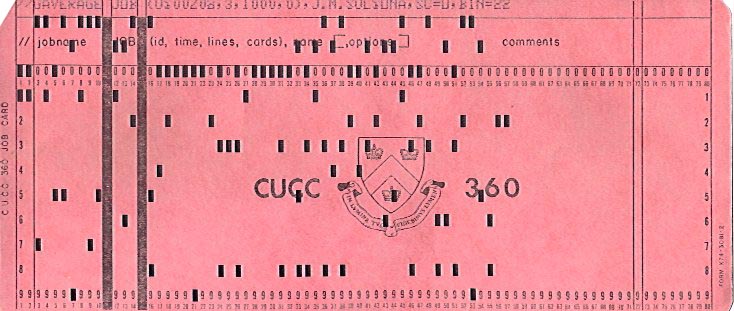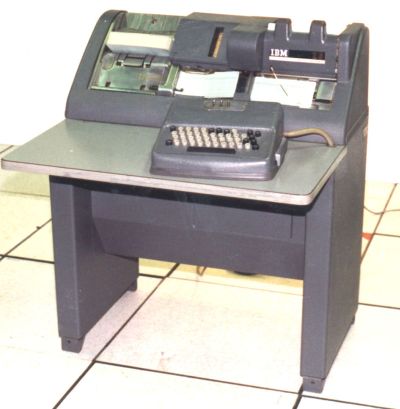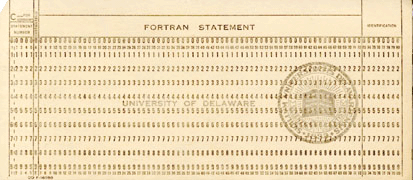#include <stdio.h>
#include <math.h>
#define N 10
int main()
{
float x[]={ -4.0, 1.2, 1.3, 2.5, -12.7,
9.0, 1.41, 65.2, -2.1, 2.36};
int i;
float sum = 0.0, average, variance;
for (i=0; i<N; i++) sum+=x[i];
average=sum/N;
for (i=0; i<N; i++)
variance += pow(x[i]-average, 2);
variance = variance/(N-1);
printf("avg.= %f std. dev. = %f \n ",
average, sqrt(variance));
return 0;
}
|
|
PARAMETER(N=10)
REAL X(N), SUM, AVE, VAR
INTEGER I
DATA X /-4.0,1.2,1.3,2.5,-12.7,9.0,1.41,
c 65.2,-2.1, 2.36/
SUM=0.0
DO 10 I=1,N
SUM=SUM+X(I)
10 CONTINUE
AVE=SUM/FLOAT(N)
DO 20 I=1,N
VAR=VAR+(X(I)-AVE)**2
20 CONTINUE
VAR=VAR/(FLOAT(N)-1.0)
WRITE(*,*) "Average=", AVE,
c ' Standard deviation =', SQRT(VAR)
STOP
END
|
|





 FORTRAN (FOrmulaTRANslation) was created a half century ago and was the de-facto
programming language for engineers and scientists until recently because of the
inertia and a vast amount of subroutines written (and fully debugged).
Although it's rare these days that you write a large program in FORTRAN from scratch,
it is still important that you are able to read a FORTRAN program somebody wrote before.
FORTRAN (FOrmulaTRANslation) was created a half century ago and was the de-facto
programming language for engineers and scientists until recently because of the
inertia and a vast amount of subroutines written (and fully debugged).
Although it's rare these days that you write a large program in FORTRAN from scratch,
it is still important that you are able to read a FORTRAN program somebody wrote before.


